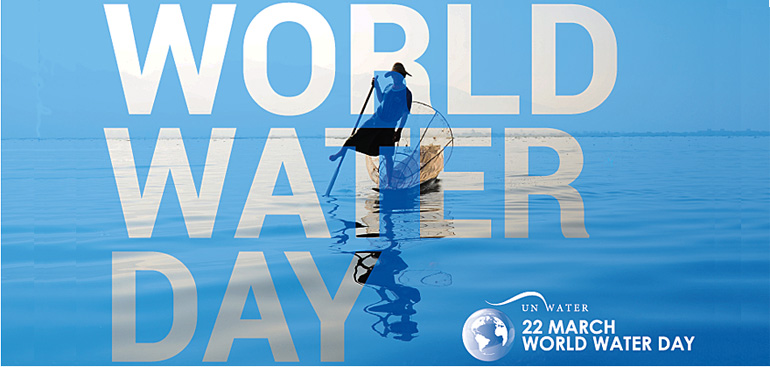The United Nations has set aside every March 22, as World Water Day, drawing attention to issues around water, one of the essential resources needed for human survival. For this year, the UN has drawn attention to groundwater, with the slogan: “Make the Invisible Visible.” The campaign draws attention to the need to preserve groundwater all over the world. The UN underscored the importance of groundwater with the following statements to mark the World Water Day: “Groundwater is a vital resource that provides almost half of all drinking water worldwide, about 40% of water for irrigated agriculture and about one-third of water required for industry. It sustains ecosystems, maintains the base flow of rivers and prevents land subsidence and seawater intrusion. Groundwater is an important part of the climate change adaptation process and is often a solution for people without access to safe water. Despite these impressive facts and figures, invisible groundwater is out of sight and out of mind for most people.”
Groundwater is an issue in Nigeria, especially as many governments tend to abdicate their responsibility of providing drinkable water for the population. In an atmosphere of water privatisation, only the wealthy have access to water, such that in many urban centres, those who can afford it dig boreholes for water. There is a high degree of borehole proliferation as housing development projects are on the increase. There is hardly any residential house, office or business building that does not have a constructed borehole in major Nigerian cities.
Experts have warned that: “When water is constantly drawn from many boreholes, groundwater recedes, and this will bring about a shift in the level of saturation of moisture. As a result of this recession, it is most likely that water at the upper soil layer will remain only at the capillary level which may not be much available to the plants and other soil organisms. This drawdown will affect soil moisture availability adversely and consequently vegetation will be affected adversely.”
The proliferation of boreholes could lead to the spread of pollution and contamination. Substances from various sources could dissolve with rain and seep through the layers of the soil to shallow aquifers. These pollutants which are injurious to human health enter into water bodies consumed by people. There are industries whose wastes are dumped indiscriminately and yet boreholes are dug all around such areas. Some boreholes stand the chance of being polluted by seepage from septic tanks around the borehole. Other domestic wastes are also sources of pollution of boreholes.
Apart from boreholes, what resonates among Nigerians on the World Water Day is water scarcity. Because water is not regarded as a social right in Nigeria, it is hardly provided for the masses. The World Health Organisation (WHO) says more than 100 million Nigerians lack access to improved sources of drinking water. The situation is worse in rural areas where less than 42 per cent of households have access to safe water for domestic use. Due to lack of commitment by the government for its provision, water vendors are providing stop-gap solutions for many households in urban and rural areas. Unfortunately, this ‘stop-gap’ measure is becoming a permanent feature in the country.
In Nigeria, the three tiers of government must rise to the challenge of the provision of safe water for the population. To achieve this, all tiers of government must realise their roles. For instance, inter-states water resources regulations are the responsibility of the federal government; water supply and sanitation service provisions are the responsibilities of the various state and local governments.
Constitutionally, sanitation services are strictly the responsibilities of the LGAs. There has to be synergy and a well-coordinated mechanism between the levels of government to deliver sustainable drinking water supply and sanitation services to the people of Nigeria. Some of the reasons why government has failed in its responsibilities include the following: inadequate data on operation and maintenance; insufficient and inefficient use of funds; corruption; poor management of water supply facilities; inappropriate system design; and low profile of operation and maintenance, among other factors.
Water is too important for human survival to be handled with levity. All tiers of government must take the provision of water for the population seriously by ensuring that it features in budgets for capital expenditure, and such projects must be implemented. In the 1970s, governments made a positive impact in urban and rural centres through the provision of drinkable water to the population. It is still possible to replicate such policies in the 21st Century.

 Join Daily Trust WhatsApp Community For Quick Access To News and Happenings Around You.
Join Daily Trust WhatsApp Community For Quick Access To News and Happenings Around You.


